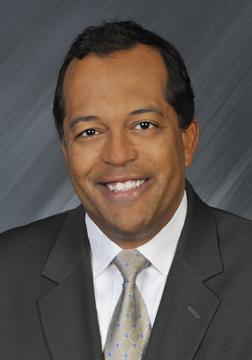Aetna's Accountable Care Chief: Tough Transition Ahead
Online integration in industries like banking is "just math" compared to what healthcare has to do, says Aetna's accountable care leader, Charles Kennedy.

inflation in medical costs. "Something definitely happened there, where they were able to influence the cost of care in a meaningful and positive way," but the approach was also "very unsophisticated and tumultuous," he said. Physicians were unhappy with being told to control the cost of care without being given the tools to do so, and provider organizations went through significant financial turmoil. "Members didn't care for it because they felt there were all kinds of hoops we made the member jump through just to get the care we need."
The approaches that didn't work well 20 years ago are being reinvented in an era of digitized medical records and powerful analytics with the potential to produce a better result. "Now, the question is: Can we get the same financial result without the tumult?" Kennedy said.
This does mean trying to steer patients to get their care from within a "narrow network" of providers and putting a new emphasis on care coordination through primary care physicians. In recent years, many health plan designs had gotten away from requiring patients to stay in network and always get a referral from their primary care physician, giving patients more freedom of choice. However, by design an ACO seeks out "a smaller number of doctors who do a really good job and do it in an efficient way. And we tell them, 'Because you're more efficient, I'm going to route more patients to you,'" Kennedy said. "Also, if you think about deploying a care management program, it's very difficult to deploy it to all people everywhere. It tends to work better with smaller groups of doctors."
ACOs have gotten their biggest boost from the Affordable Care Act, which directed Medicare to begin sponsoring ACO programs aimed at stretching tax dollars. The private ACOs in which Aetna participates as a payer are independent of that, but "we typically use the federal programs as part of the strategy," Kennedy said. Medicare payments make up the biggest share of revenue for hospitals, so the government's clout dwarfs the influence of even a Fortune 50 insurance company like Aetna.
"By aligning our programs with the federal programs, that gives us the patient share, the volume to justify the reengineering, the new programs, and the new technology you need to be successful," he said.
The technological challenges remain significant. While federal Meaningful Use incentives have propelled the adoption of electronic medical records systems, for a long time adopting an EMR was like "buying a computer before the Internet," meaning you could use it to record, retrieve, and print information, but not for more collaborative tasks. With health information exchange technology, it's like the industry has advanced to the "email with attachments" phase, but it's still developing a more robust online healthcare economy. Aetna is in the HIE business, too, with its Medicity subsidiary, aiming to add analytics on top of data exchange and aggregation.
The complexity of healthcare information belies comparisons with industries like banking, which has had a robust system of wire transfers, ATMs, and other online financial transactions for decades, Kennedy said. "There, you're really just moving math."
Where all of finance can be reduced to numbers, the diagnosis and procedure codes used in healthcare are only approximations of the clinical information they represent, and they tell only part of the story, Kennedy said. Collaborating to deliver better care at a reasonable cost will take much more than that, and his organization aims to help make that happen.
Download Healthcare IT in the Obamacare Era, the InformationWeek Healthcare digital issue on the impact of new laws and regulations. Modern technology created the opportunity to restructure the healthcare industry around accountable care organizations, but IT priorities are also being driven by the shift.
About the Author(s)
You May Also Like
How to Amplify DevOps with DevSecOps
May 22, 2024Generative AI: Use Cases and Risks in 2024
May 29, 2024Smart Service Management
June 4, 2024







